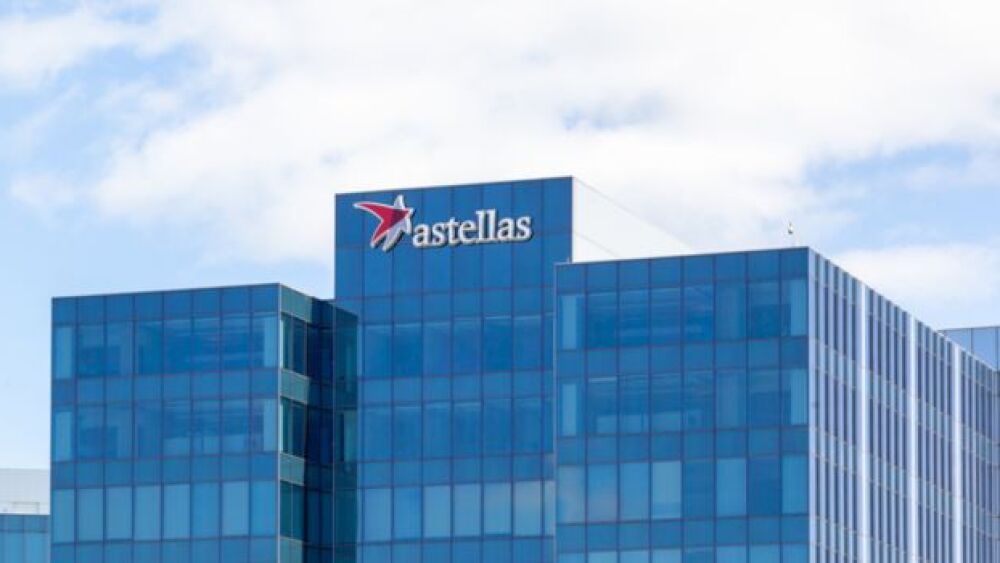Kelonia Therapeutics’ in vivo gene placement system is being tapped to help Astellas Pharma expand its portfolio of in vivo CAR-T cell therapies for cancer.
Pictured: Astellas’ headquarters for the Americas in Illinois/iStock, JHVEPhoto
Astellas Pharma, through its subsidiary Xyphos Biosciences, on Thursday entered into a research collaboration and licensing pact with Boston-based Kelonia Therapeutics to develop novel immune-based therapies for cancer.
Under the agreement, Astellas and Kelonia will work on up to two oncology programs, though the companies have yet to disclose their specific targets. Astellas will make an upfront payment of $40 million for the first program and an additional $35 million if it exercises its option for the second program.
Kelonia will also remain eligible for up to $800 million in potential milestones and contingency payments, plus other funding for the R&D work it will perform under the collaboration. If the partnership results in a marketable product, the Boston biotech will also be entitled to tiered royalties on net sales of up to a double-digit percentage.
Adam Pearson, chief strategy officer at Astellas, said in a statement that the partnership will highlight “synergies” between the platforms of its subsidiary Xyphos and Kelonia. Pearson noted that Kelonia’s “elegant, cutting-edge in vivo delivery technology,” dubbed the in vivo gene placement system (iGPS), will help Astellas expand its portfolio of in vivo CAR-T cell therapies for cancer.
Kelonia’s iGPS, which is at the center of Thursday’s agreement, packages genetic payloads inside next-generation lentiviral vectors, allowing for their efficient delivery into the target tissue and cells. According to the biotech’s website, iGPS is designed to be off-the-shelf and can engineer the patient’s own cells within the body to express the therapeutic protein.
The partnership will combine Kelonia’s iGPS with Xyphos’ ACCEL and convertibleCAR technologies, which take a synthetic biology approach to generate flexible cell therapies that “can be engineered and re-engineered inside the body,” according to the website. The platform allows Xyphos to target more than one cancer antigen and opens additional ways to “mobilize immune cells to find and destroy target tumor cells.”
Astellas’ agreement to expand its CAR-T portfolio comes as the FDA increases its scrutiny of the drug class. In November 2023, the regulator announced that it was investigating CAR-T therapies following reports of secondary malignancies in treated patients. In January 2024, the FDA pushed for a class-wide boxed warning on these therapies.
In a perspective piece last month in The New England Journal of Medicine, two FDA officials revealed details about the probe, noting that the agency has flagged at least 22 cases of secondary malignancies. In three of these instances, the CAR transgene was found in a malignant clone.
Tristan Manalac is an independent science writer based in Metro Manila, Philippines. Reach out to him on LinkedIn or email him at tristan@tristanmanalac.com or tristan.manalac@biospace.com.






